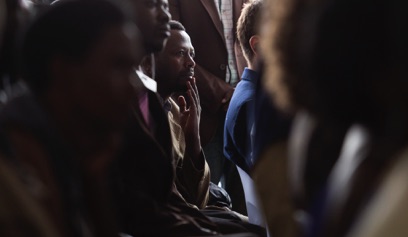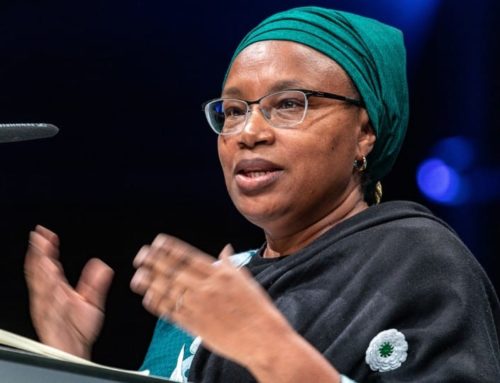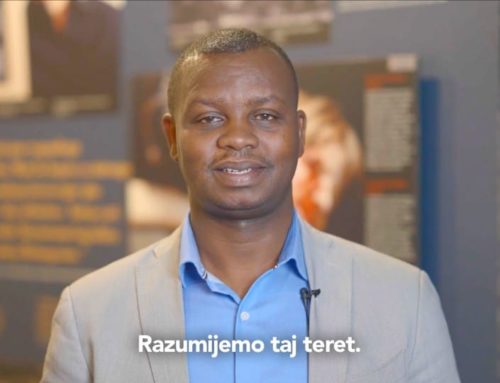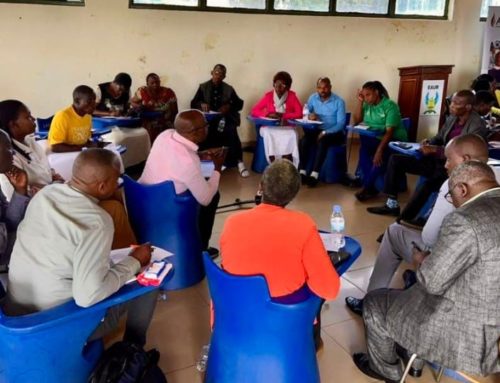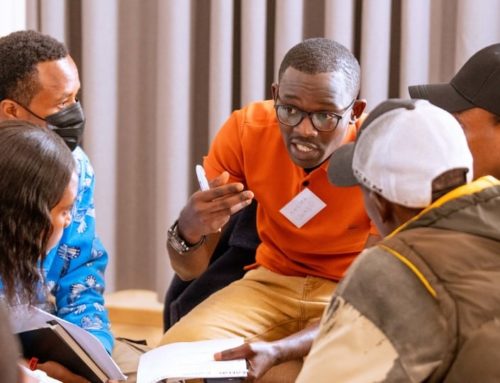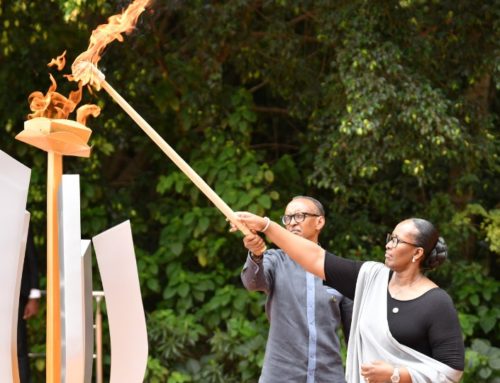Rwanda’s Ministry of Education last week commenced training its teacher trainers in delivery of the peace education component of the new national Schools Curriculum. The brainchild of the team at the Aegis-led Rwanda Peace Education Programme (RPEP), this has been developed in close collaboration with the Rwanda Education Board (REB) and sees peace education integrated as a cross-cutting element in all subject areas.
Held at Musanze from 11 to 13 May 2015, the training was designed to provide to REB Master Teacher Trainers with a deep understanding of peace and values education as contained in the revised curriculum. They were also trained in the participatory and interactive teaching methodology used by the Rwanda Peace Education Programme.
Speaking at the close of training for the 27 participants in Musanze, Dr Joyce Musabe, the Deputy Director-General in charge of curriculum and pedagogical materials for the Rwanda Education Board commended the Aegis Trust and its partners in the Rwanda Peace Education Programme for their ambitious initiative, identifying the need to integrate a peace-building component into educational policy. “We are pleased by this collaboration that will not only contribute in raising knowledge on peace education but also in creating a generation and a society with humanity,” Dr Musabe stated.
Damien Ntaganzwa, REB Deputy Director in charge of Teacher Development and Training, emphasised that teachers can only convey to children what they fully understand themselves,. He commented, “Peace education is fundamental in nurturing people with values. If children had been taught these values at school, the genocide would not have been possible because the force used was a big number of young people.”
Yves Kamuronsi, Acting Country Director for the Aegis Trust, thanked everyone who participated in the training and promised continuous support and collaboration with the Ministry of Education. He mentioned that this journey of building peace isn’t an easy one, it requires effort both in terms of providing necessary skills and in sharing experience. “We reach out to students and their teachers through different programmes, you bring your input as experts in education, and together we can make a difference in our children,” he commented. Kamuronsi concluded by saluting all partners for this huge step. Partners include Rwanda’s Institute of Research and Dialogue for Peace (IRDP), the USC Shoah Foundation and Radio La Benevolencija (RLB). The biggest supporters of this programme are the Swedish Embassy in Rwanda and the Department for International Development (DFID) in Rwanda.

